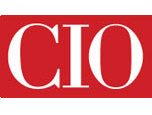Dark Clouds Gathering for Indian Service Providers
The effort around reforming H1B work visas in the global services industry has been dangling for years, entrenched in a political battle in Congress. But there’s movement again, and dark clouds are gathering on the horizon, signaling a coming storm. Five days ago, the US House Judiciary Committee passed HR 170 (Protect and Grow American Jobs Act) with solid, bipartisan support, and it carries onerous policies aimed at India’s outsourcing service providers – as well as problems for their clients. It hasn’t passed into law yet; but it could happen in 2018. Here’s my assessment of the situation.
Proposed Requirements
As I’ve blogged several times since May 2013, reform focuses on service providers whose business model depends heavily on a large percentage of H1B workers placed at US clients. HR 170 raises the classification of H1-dependent firms to 20 percent, rather than 15 percent of workers. Providers would be required to pay higher wages to their H1B workers – with the minimum salary tied to the average occupational wage in the US. That’s a raise from the current $60k up to, and potentially surpassing, $135k.
The bill adds authorization for the US Department of Labor to conduct investigations of H1B-dependent firms – without first having to establish reasonable cause – and provides for a $495 fine to be levied on the firms for the investigations.
HR 170 also would require US clients to provide attestations and “recruitment reports” attesting that no US workers were displaced by H1B workers. This would add the burden of new management and compliance processes.
Impact
Obviously, the onerous requirements are targeted at Indian service providers that heavily use H1B workers (especially Cognizant, Infosys, TCS, Wipro). The provisions would raise their costs. They would not be able to pass those costs through to clients, so it would reduce their margins. Making it more onerous to use H1B workers would also negatively impact the Indian providers’ business models, which rely on the high-margin “factory” structure for talent provision.
Is it a Long Shot?
Although HR 170 was passed with bipartisan support by the House Judiciary Committee and has yet to pass the full House. If that were to happen, the bill would still face bipartisan battle in the Senate. We’ve seen that play out this year in efforts to repeal healthcare laws and now in tax reform efforts.
However, it may not be a long shot. The bill’s main sponsor, Darrell Issa, the Republican representative from California, will face re-election battles next year and is likely to push harder for a win in visa reform. And don’t overlook the fact that California’s Silicon Valley firms would benefit from onerous visa regulations targeting India’s firms.
My Takeaway Warning
India’s service providers are already struggling in an uphill battle aside from visa reform. They struggle to gain competence and market share in evolving to the digital world. Investments in rotating to digital raise providers’ costs, take time and often lead to battles with investors and other stakeholders who want to maintain the current margin levels. In addition, margins in the digital models are low, for at least the short term.
H1B visa reform’s dark clouds gathering on the horizon for the Indian service providers will only heap new burdens on providers already struggling with margins and new business models in trying to become leaders on the digital space. I believe the bill, if passed into law, would inhibit their growth.
US clients, which want more valuable digital services from third-party firms – but want to pay the low cost they have enjoyed with offshore providers for many years – must recognize that strategy is no longer in the playbook. They also need to be mindful of providers changing their business model and delivery practices to accommodate the requirements of H1B worker provisions when the reform passes into law and how the provider’s decisions will impact the client’s work.


